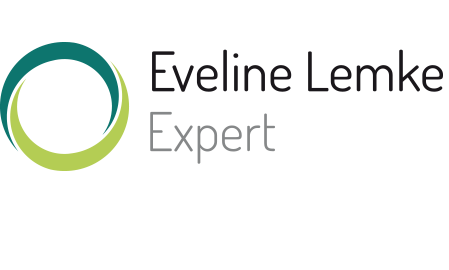
Literature tip – Economy(s) with a future
Beyond the illusion of growth
Reinhard Loske’s essay “Ökonomie(n) mit Zukunft. Jenseits der Wachstumsillusion” (Economy(s) with a future. Beyond the growth illusion) answers key questions about suitable assumptions for a sustainable economic theory. It resolves some of the theoretical conflicts surrounding the conceptualization of alternative economic theory or criticism of growth that exist among green economists and politicians. Most recently, the Heinrich Böll Foundation suggested offering nationwide training courses on pluralist economics in order to provide clarification on pluralist approaches. This is in line with Loske’s ideas and, not least, those of the Federal Minister of Economics. Robert Habeck repeatedly emphasizes: “The point is not to make gender, ethnic, origin or educational identities absolute, but to translate them into a plural society based on shared values and common rules.”[1] Habeck says that the economy is a part of society: “However, since many positions of the emancipatory, liberal-green movement have now become capable of winning a majority, we no longer need to insist on a higher truth – and we no longer do.”[2] He is making his point, but he does not explain exactly what this means or how he arrived at this statement – apart from the political necessity of saying it.
Against this background, it makes sense to take a close look at Loske’s arguments. They form the basis, not least for the economic policy represented by Bündnis 90/Die Grünen in the federal government. The line of argument also makes it easier to advocate measures to be implemented in realpolitik, which not everyone always likes. And if that’s not enough, you can read Loske’s arguments in the previous parts of the trilogy. This was preceded by “Abschied vom Wachstumszwang. Konturen einer Politik der Mäßigung” (2010) and “Wie weiter mit der Wachstumsfrage?” (2012).
Growth theory is not a moral theory
However, moral theories can make use of pluralistic approaches
Loske’s core argument is to clear up a major misunderstanding that is widespread in our society. Economics is seen as an abstract, rational, mathematical science that we use to guide our actions in producing, exchanging and consuming. However, the current linear affluent capitalism has established itself rationally, and until the 19th century economics was regarded as part of moral science (p. 36). This included adherence to ethical principles, such as combating suffering, hunger, inequality and ignorance. It was only with industrialization and globalization that this view changed and mutated into the theory of growth, because everything that was achieved was never enough. It is time for us to remember this and return to moral values.
But what can the mainstream economy and the end of constant growth look like? Loske answers this question in his essay. His recommendations are:
- An alternative, socio-ecological way of thinking that is critical of globalization, the financial market and growth is necessary. Our greed for growth and prosperity has led to us extracting enormous amounts of resources from the earth every year and destroying the environment in the process. We have taken it so far that a reversal will soon no longer be possible. More and more climatic tipping points are threatening to tip (Global Tipping Points Report), while some planetary boundaries have already been reached.
- A new economy of sustainability and a socio-ecological transformation of the economy must take place as quickly as possible. It is irrelevant whether it is called post-growth, green growth, sufficiency policy, socio-ecological transformation, cooperative economy, green economy, economy for the common good, ecological economy or any other name (p. 46). Loske assumes that there will always be a transformation due to the changing environmental conditions. He sees three forces that will be central to the path to sustainability: suffering, 2. compulsion and 3. perspective (p. 10f.).
- For Loske, cooperation, plurality and diversity are key to achieving the goal (p. 61): If politics, technology, business and society work together and face the challenges together, it can succeed with “[ …]the will to act, a willingness to change, the ability to deal with conflict in the face of inertia and also a high degree of confidence, a willingness to experiment and an entrepreneurial spirit” (p. 34).
- The goal of sustainability is formulated with the corresponding agenda, but the path to it is unclear. This creates uncertainty, yet the fact that we are part of systemic developments can only be accepted. His explanation serves as orientation on this journey when he emphasizes that moral building blocks such as acceptance of responsibility, credibility, honesty, fairness and imagination for creative solutions must be the basis of the moral economy.
When you read Loske’s essay, you realize that there can be another world. A world in which a plural economy is possible within planetary boundaries and in which people act together and use nature instead of exploiting it. But this requires change. The goal is clear: an economy with a future. And so everyone must ask themselves the question: Do you want to end up being part of the problem (destructive forces) or part of the solution (productive forces)? (S. 15)
[1] https://www.fr.de/kultur/timesmager/das-ganze-90168647.html
[2] https://jungefreiheit.de/politik/deutschland/2021/habeck-warnt-identitaetspolitik/



No Comments